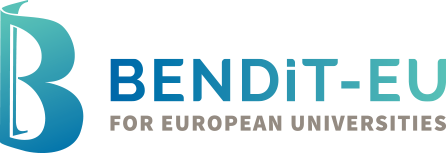Consortium of Partners
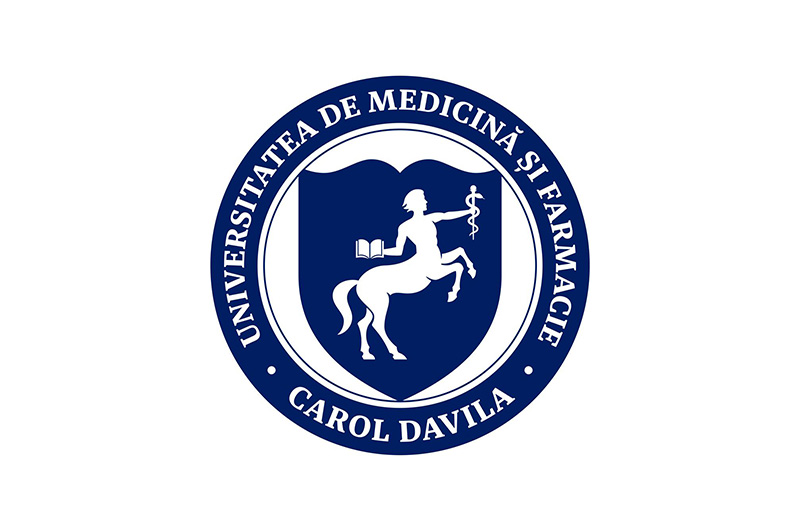
Carol Davila University of Medicine and Pharmacy, Bucharest, Romania
“Carol Davila” University of Medicine and Pharmacy, Bucharest (CDUMP) (Universitatea de Medicină și Farmacie „Carol Davila”) is the largest health care educational institution in Romania (with specializations in Medicine, Dental Medicine, Pharmacy and Nursing) and a major contributor to the national excellence in health care education and research. The Faculty of Medicine is a promoter of medical education in Romania, with almost 4500 students, and a number of 1300 teaching staff. The Faculty of Medicine is accredited in Bachelor, Master, Ph.D. and Postgraduate degrees in Romanian and English. Yearly, over 350 international students enroll in the Bachelor Degree Program taught in English. There are 167 Disciplines in the Bachelor Degree Program, such as Anatomy, Cellular, and Molecular Biology, Physiology, Medical Psychology, Healthcare Marketing, Public Health and Management, Medical Expertise and Recovery of Work Capacity, Hygiene and Medical Ecology, Occupational Medicine, which are held in over 200 fully equipped laboratories and 50 Amphitheatres.

National Institute of the Management of Health care services, Bucharest, Romania
National School of Public Health, Management, and Professional Development, Bucharest (NSPHMPDB) is a public institution dedicated to the knowledge-mediated education of Public Health professionals and to the improvement of health, disease prevention and sustainability for decision policymakers. NSPHMPDB has a wide expertise in providing courses on health services management and administration, and consultancy on public health institutional management. NSPHMPDB is specialized in elaborating post-graduate training programs in Public Health, administration and health services management. It also provides and ensures the accreditation, organizing and certifying of the continuous education programs and professional development in Public Health and health management for health system personnel. These programs are adapted to the specific needs of individuals and communities. The strategic objectives of NSPHMPDB are: (a) training and professional development at the highest level for health system professionals, providing scientific evidence to support health decisions and policies; (b) evaluating, implementing and disseminating research, to improve health practices; (c) conducting studies and operational research to increase health system performance; (d) educating and informing the population about attitudes and behaviors related to health, healthy lifestyle and raise public awareness about the importance of individual involvement in the maintenance and improvement of the general health status.
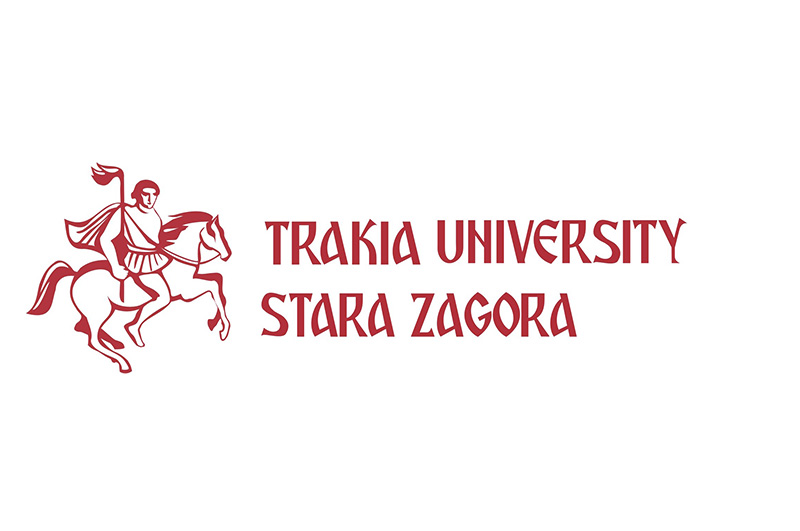
Trakia University, Stara Zagora, Bulgaria
Trakia University, located in Stara Zagora, Bulgaria is an autonomous state institution, established in 1995. Almost 600 highly qualified teachers and guest lecturers from other universities from Bulgaria and abroad are educating over 8000 Bulgarian and international students, in over 70 accredited Bachelor and Master degrees, and more than 70 doctoral programs. The following 9 units are included in the university’s structure, preparing university graduates: Faculty of Medicine, Faculty of Veterinary Medicine, Faculty of Education, Faculty of Agriculture, Faculty of Economics, Faculty of Technics and Technologies, Branch in Haskovo for the training of medical staff, Department for information and in-service teacher training. Priority areas of scientific research at Trakia University focus on the following scientific areas: Food and health, Educational Strategies, Biotechnologies, Biodiversity, and natural environment; Cultural and historical heritage, National identity, Agriculture sciences, and social environment; Technics, Information, and communication technologies. Teaching is carried out in 16 campuses with modern lecture and computer halls, rooms for seminars and practical exercises, language labs, and clinics.
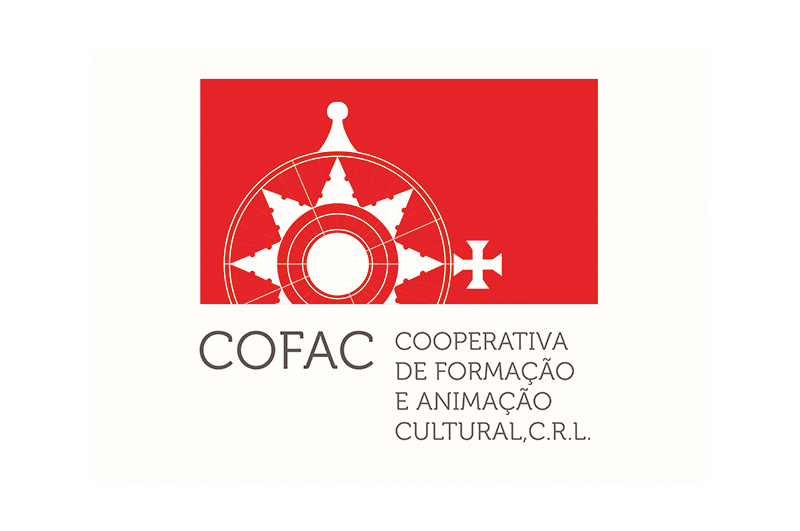
COFAC (Lusofona University), Lisbon, Portugal
Since 1998, Lusófona University has been recognized by the Ministry of Science, Technology and Higher Education as the largest private university in Portugal and integrates 10 higher education institutions in Portugal, Brazil, Cape Verde, Mozambique, and Guinea-Bissau. It has a student body of more than 10.000 students and 1500 teachers and it is structured around 9 (nine) Schools that constitute the main institutional unit. The university offers 44 undergraduate Degrees, 45 Master Degrees, 11 Ph.D. programs, 42 Post-graduation courses, and a large number of vocational and continuous training courses, according to the life-learning development paradigm. It is the 8th university in the number of students and teachers holding Ph.D. degrees amongst the 25 state and private universities in Portugal. Among the Bachelor’s Degree programs, Lusófona University offers Health Sciences and Psychology studies. The Health Sciences program has a Nutrition Sciences specialization, which offers solid scientific knowledge in basic health sciences, social and behavioural sciences, with the goal of promoting the health of individuals and populations. Students enrolled in this program learn Functional Anatomy, Genetics, General Microbiology, Physiology, Psychology, Computer Science, Immunology, and Pharmacology. The Psychology program concentrates on providing general training in the field of psychological sciences, with an interdisciplinary approach, and, specifically, on addressing in a scientific manner the basic psychological processes. Lusófona University has a large experience in research and project management of European and international projects in a wide range of scientific areas, being able to broaden its participation in fields that may cover the development of Virtual Learning Environments, the development of didactic materials for the teaching and learning activities/outputs and communication and dissemination of activities.
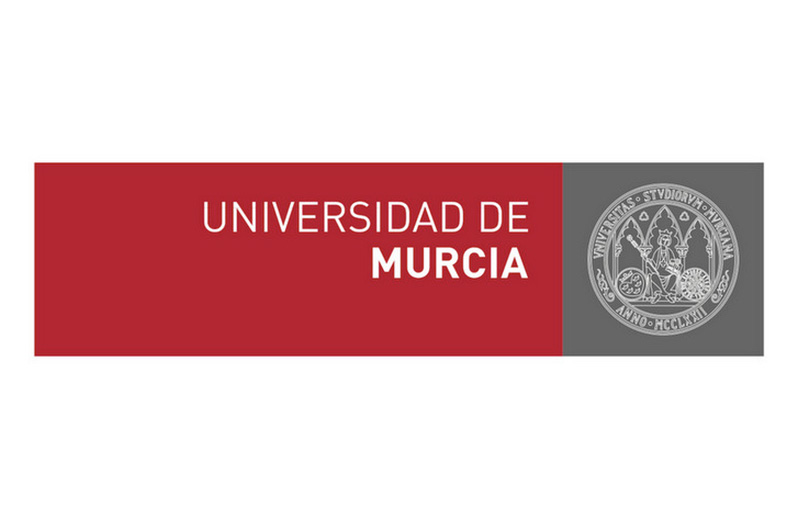
University of Murcia, Murcia, Spain
University of Murcia is the most important public teaching and research organization of the Region of Murcia. University of Murcia (UMU) is a one-hundred-year-old institution that traces its origins to the 13th century. Nowadays, the UMU is a comprehensive university, offering 54 graduate degrees, 68 master programs and 35 doctoral programs in 20 faculties and 4 university schools. It counts on 32,552 students in 5 campuses, 2,285 of which are doctoral students, 2,652 lecturers, and 1,198 administration and management staff. Research is one of the pillars of UMU, covering 5 scientific areas: Sciences, Health Sciences, Social and Legal Sciences, Engineering and Architecture and Arts and Humanities. There are currently 347 Research Groups and 2 Institutes of Research. University of Murcia has extensive experience in hosting collaborative projects and promoting research excellence in a learning environment. UMU has also a large experience in the management of research projects. More than 120 European projects belonging to different Frames RTD Programmes have been managed in the past, 12 of them within the 7th FP. Currently, there are funded at the national level, 176 research projects. The European and International Research Project Office – Operum – is the university’s office in charge of proposal preparation and submission of international projects, as well as management and control of these projects, once they have been approved..
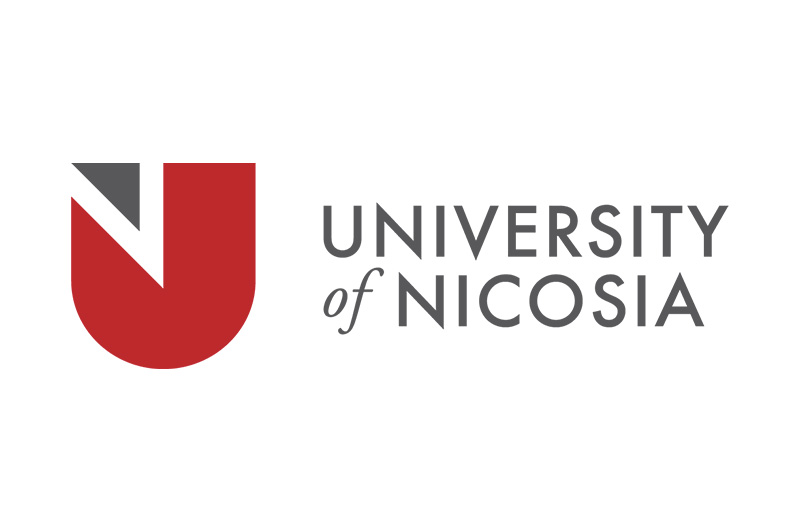
University of Nicosia, Nicosia, Cyprus
University of Nicosia is the largest university in Cyprus and in Southern Europe that teaches primarily in English, with over 12,500 students from 70 countries across the globe, coming together in an innovative and transformative learning space. All programs of the University of Nicosia are fully accredited by the relevant professional associations/councils/bodies and thus all its graduates qualify to practice the profession they have studied (this professional recognition applies also to the European Union countries). UNIC has a Medical School, School of Education, School of Business, School of Humanities and Social Sciences, School of Law and Engineering. UNIC has a total number of 572 employees, out of whom 211 are full-time faculty members, 204 are part-time faculty members, and 157 are administrative staff. An integral part of University of Nicosia’s approach to the learning process is the academic community’s commitment to helping students develop higher-order skills of critical analysis, reflection, and problem-solving. Moreover, UNIC also supports students in building knowledge collaboratively and engaging in social learning. Research at UNIC focuses on a variety of global and local issues, including health, complex networks, social organization, education, ICT, engineering, and environmental sustainability. The majority of the faculty members of the University of Nicosia Medical School are experienced researchers involved in a variety of areas, as follows: • Social Sciences: Clinical Communication, Health Psychology, Medical Education, Medical Sociology • Basic Medical Sciences: Cancer Biology, Immunology, Molecular Biology, Molecular Virology, Neuroscience, Pharmacology • Clinical Sciences: Cardiology, Epidemiology and Public Health, Gastroenterology, Genetics, Geriatrics, Neurology, Nephrology, Primary Care, Respiratory Medicine, Rheumatology, Reconstructive Surgery, Surgery. Moreover, there are dedicated medical facilities at the UNIC such as 2 Nursing Laboratories, 2 Nutrition Laboratories, 1 Psychology Laboratory, 2 Physiotherapy Laboratories, 1 Pathology Laboratory, 1 Anatomy Laboratory, and 1 Clinical Skill Laboratory.

VITECO, Catania, Italy
VITECO supplies complete and integrated solutions, built around different target users’ needs. Thanks to the experience gained throughout the years in the domain of knowledge and content management, VITECO makes it possible for private companies and public agencies to develop their own “store of knowledge”, obtaining significant competitive advantages. Its staff is formed out of professionals specialized in engineering and business administration. Its products are simple and intelligent platforms, which give users access to a variety of contents and to the “e-learning experience” without requiring specific IT competences. VITECO is fully engaged also with social networks, blogs and e-learning that support learning initiatives of wide range groups of users. Moreover, VITECO’s European Project Office has been involved in several EU projects and many regional projects, both as coordinator and partner, thus being capable of providing technical, and management support during projects’ implementation.
“Carol Davila” University of Medicine and Pharmacy team

Ovidiu Popa-Velea
Ovidiu Popa-Velea is Associate Professor in Medical Psychology, Faculty of Medicine, CDUMP, Bucharest. He is a graduate of the Faculty of Medicine and of the Faculty of Psychology in Bucharest. He earned an MA degree at the New School University in New York (2003), as a Fulbright Alumnus. His academic formation also includes the licensure in Cognitive-Behavioural Therapy (2010) and the Ph.D. in Medicine (2008). He has participated in the FP7 OPCARE9 program, financed by the EU, dedicated to studying psychological and psychosocial care in Palliative Care patients (2008-2011), and as an expert or member of the research team in three other research projects. He has published research papers on burnout, academic stress, coping mechanisms, adherence and was the editor of the first East-European comprehensive textbook of Behavioural Sciences in Medicine, published in English (2013). Since 2011, he has been the Head of the Department of Medical Psychology at the Faculty of Medicine, CDUMP, Bucharest.

Liliana Veronica Diaconescu
Liliana Veronica Diaconescu is Lecturer in Medical Psychology, Faculty of Medicine, CDUMP, Bucharest. She holds a BA in Medicine and Psychology, an MA in Cognitivebehavioural therapy and a Ph.D. in Medicine. She has been a member in national research projects (“Detection and monitoring of somatic and psycho-behavioural deficiencies in children and adolescents”, “Techniques of comparative evaluation of the university qualification in Romania”) and in an international research project (“HORIZON 2020” vCare) and has also coordinated several health programs (AIDS 2007- 2008 and TB 2013-2017) at the Public Health Authority Bucharest. Her research interest is burnout syndrome in medical academia and health care.

Alexandra Ioana Mihăilescu
Alexandra Ioana Mihăilescu is Lecturer in Medical Psychology, Faculty of Medicine, CDUMP, Bucharest. She holds a Ph.D. in Medicine and she is a senior psychiatrist at the Clinical Hospital of Psychiatry „Obregia”, Bucharest. Her research interests are health psychology and psychopharmacology. She has participated as an investigator in a number of 15 European clinical trials in psychiatry, among which: EUFEST, OPTIMIZE and EULAST, the last two projects being coordinated by the European Commission. She presently does research in psychological health and burnout syndrome in young adults in medical academia.

Iuliana Raluca Gheorghe
Iuliana Raluca Gheorghe is Lecturer in Health Care Marketing at the Faculty of Medicine, CDUMP, Bucharest. She holds a BA degree in Cybernetics, MA in Marketing and Business Communications and a Ph.D. in Marketing. She is also a statistician (basic and advanced) and an authorized translator (medical and legal terms). She was a project manager in the POSDRU project (88/1.5/S/55287) – Doctoral Program in Economics at European Knowledge Standards. She was a visiting researcher at the University of Bradford, School of Management, UK. Her research interests include health care consumers, organizational culture and sustainability, organizational communications, and Social Marketing.
Trakia University team
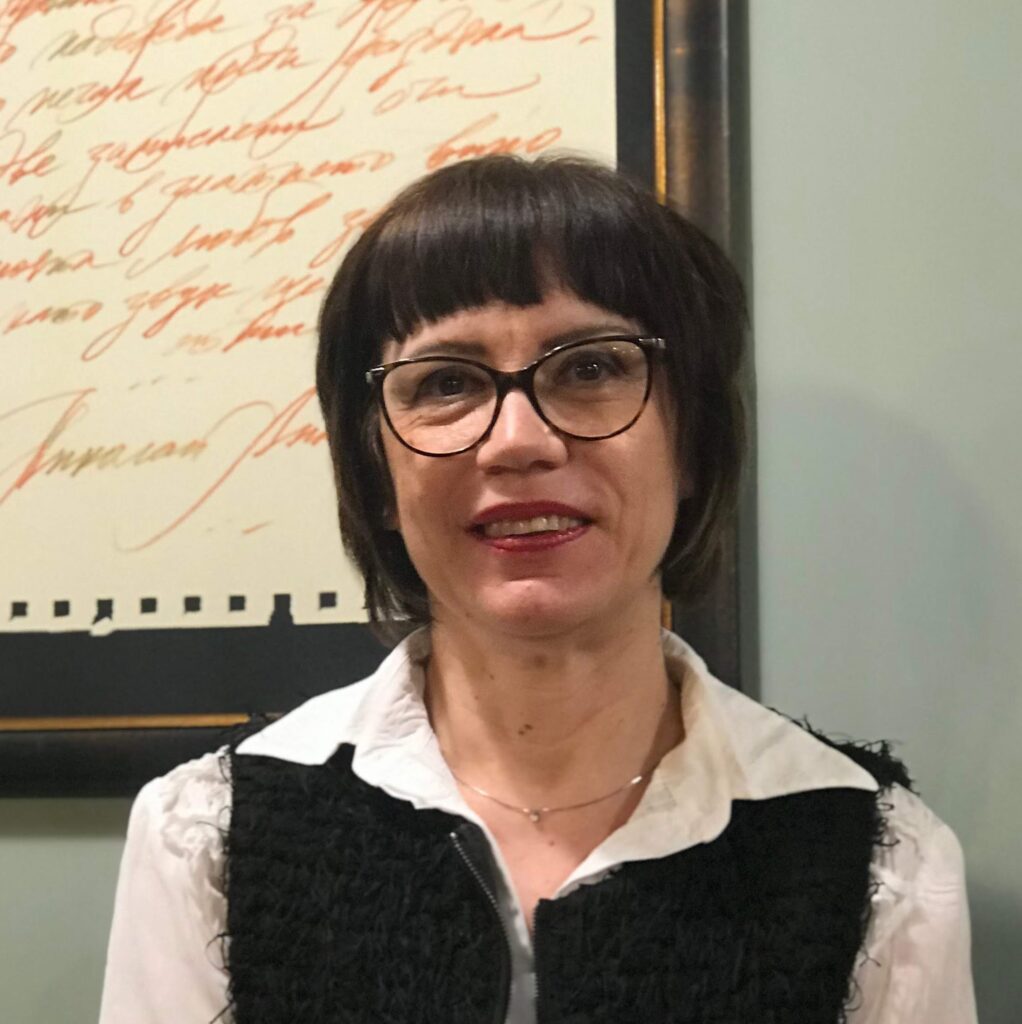
Miroslava Petkova Petkova, PhD
Clinical psychologist,
Professor in Medical Psychology at Medical Faculty, Trakia University, Stara Zagora, Bulgaria, Head of Department “Medical psychology, social work and foreign languages”
Research interests: Subjective well-being, life satisfaction and health, Psycho-somatic diseases, Psychology of pain, Gelotophobia.
Publications: more than 100 publications in international and Bulgarian scientific journals, more than 200 citations. Books: “Subjective well-being and health” – 2002, “Psychology in medicine” – 2014, “Aging and Dementia” – textbook
Projects participation: 8 University project and 6 international projects: For example:
– ADEM – Qualification for the Care of People with Dementia, Community vocational training action programme “Leonardo da Vinci”,LANGUAGE COMPETENCES, TRANSNATIONAL NETWORKS AGREEMENT 2008 DE/08/LLP-LdV/TOI/147176
– Leonardo da Vinci ProjectDUKOM,”Improvement of vertical and horizontal permeability of
competencies in the field of geriatric care” DE/10/LLP-LdV/TOI/147359
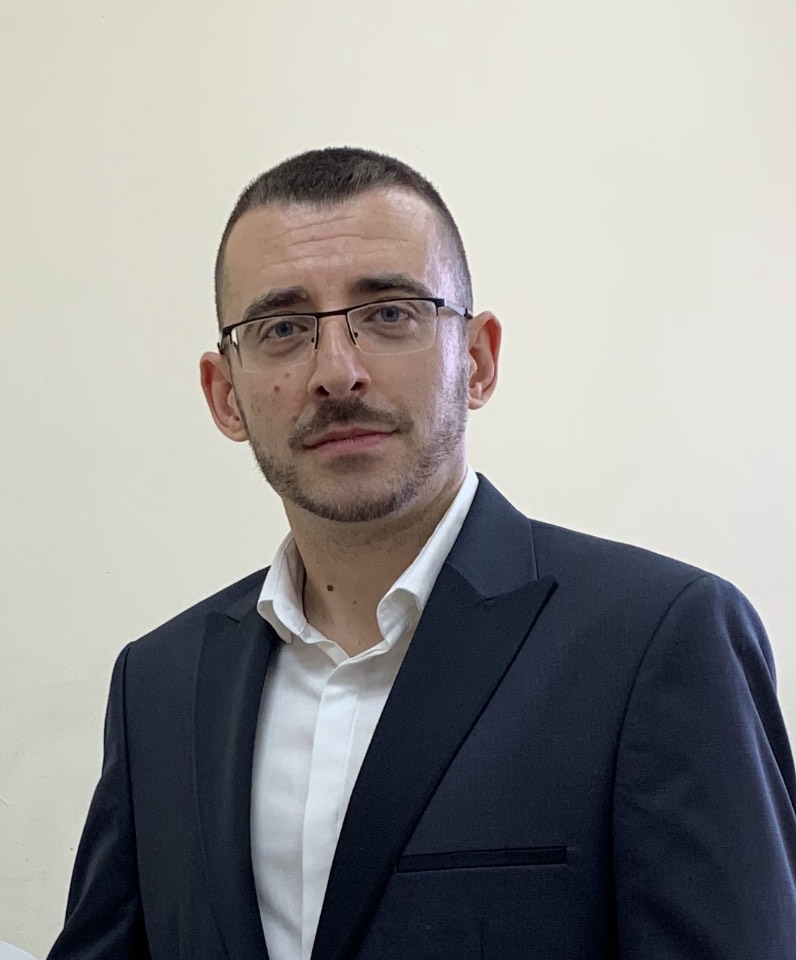
Assoc. Prof. Dr. Julian Ananiev, MD
Assoc. Prof. Dr. Julian Ananiev, MD has a doctorate since 2011 and a specialty in “General and Clinical Pathology” since 2013. In 2014 he was elected “Associate Professor” in “Pathology and Cytopathology” at the Medical Faculty of the Thracian University. Since 2015 he has been a part-time associate professor at MU-Plovdiv. There are several specializations and specialized courses, including: specialization in “Nephropathology” with Prof. Violina Minkova, MD, MMA-Sofia; Cardiovascular Pathology course with Prof. Mary Shepard, St. George Medical School, London; courses in gastrointestinal pathology in Hungary and Slovenia, etc.
Since 2019 he has been a member of the National Expert Board for General and Clinical Pathology at the Ministry of Health.
Dr. Ananiev’s research interests are in the field of nephropathology, oncopathology of the gastrointestinal system, cardiopathology and molecular pathology.
He is the author and co-author of over 80 articles in Bulgarian and international magazines and is a participant in over 65 forums.
He is a member of the European Society of Pathology, the European Association for the Study of the Liver, the European Network of Gastrointestinal Pathology.
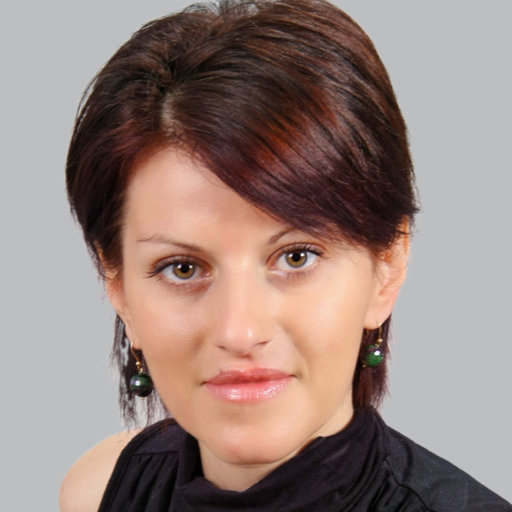
Assoc. Prof. Darina Zaimova
Assoc. Prof. Darina Zaimova is Head of Department “Economic analyses and social research” at the Institute for sustainable transition and development, and Deputy Head of Department “Industrial business and entrepreneurship” at Faculty of economics at Trakia University. She is a beneficiary of the Justus-von-Liebig Award – research fellow in the Institute of Agricultural Economics of the Christian-Albrechts-University, Kiel, Germany; post-doctoral research fellow at the European Research Institute on Cooperative and Social Enterprises – EURICSE, Italy. Her teaching courses and research interests include eco-entrepreneurship, business planning, sustainable development, bioeconomy, local development and government policy. She was part of the team of Erasmus Intensive programme on Business 2.0. From 2014 she is a member of the Management Committee for the COST TARGETED NETWORK TN1302, appointed at national level for Bulgaria. She is the project coordinator and the scientist in charge under the project “Cooperative business and innovative rural development: Synergy between academia and business partners (C-BIRD)” – (http://c-bird.eu/). She is leading Bulgarian team in the project “A knowledge Alliance in Eco-Innovation Entrepreneurship to Boost SMEs Competitiveness – SMecoMP” and also coordinator of the Erasmus + “Strategic partnership for AGRI-entrepreneurship and EcoInnovation” – AgriEco. She is part of the team of the “BIObec – Preparing the creation of Bio-Based Education Centres to meet industry needs and boost the contribution of the bioeconomy to societal challenges”, funder under H2020.

Bilyana Tsvetanova Petrova
Assistant Professor in Medical Psychology at Medical Faculty, Trakia University, Stara Zagora, Bulgaria, Department “Medical psychology, social work and foreign languages”.
Clinical psychologist.
Research interests: Substance dependence, Problematic Internet use, Anxiety disorders, Personality disorders.
Publications: more than 20 publications in Bulgarian scientific journals.
Projects participation: 6 University project and 3 international projects, for example:
– ADEM – “Qualification for the Care of People with Dementia”,
– DUKOM-“Improvement of vertical and horizontal permeability of
competencies in the field of geriatric care”.
COFAC (Lusofona University) team

Pedro Gamito
Pedro Gamito earned his PhD from the University of Salford (UK) in Built and Human Environment in 2002, and the title of Aggregate in Rehabilitation by the University of Lisbon in 2012. Pedro is a Full Professor and the Director of the Computational Psychology Laboratory at the School of Psychology and Life Sciences and the director of the Research Centre – HEI-Lab – Digital Human-Environment Interaction Lab, at Lusófona University. Since 2004 he has been developing, validating, and applying numerous virtual reality applications designed for the treatment of anxiety disorders and for the cognitive stimulation of patients with stroke, TBI and Substance Use Disorders. His apps are being use daily in the two largest Portuguese psychiatric and rehab hospitals. He has participated in several projects in the field of eHealth and contributes to the most relevant professional associations within his line of work. In 2018, he was awarded with the Lifetime Achievement Award of the International Association of CyberPsychology, Training & Rehabilitation.

Patricia Correia Santos
Patricia Correia Santos is a Ph.D. student in Psychology at School of Psychology – University of Minho, with a scholarship granted by Fundação para Ciência e a Tecnologia (FCT: SFRH/BD/129194/2017). She was also granted a Fulbright research scholarship with the support of FCT which allowed her to be in the University of Connecticut – Health Center, USA, from March until July 2021, for an internship. She holds a master’s degree in Clinical and Health Psychology and has 5 published papers in peer-review journals. At the moment, she is working on a systematic review of complex trauma prevalence rates in youth and a scoping review of poly-victimization. This latter is a joint project with Dr. Julian Ford, from UConn Health, USA, who is also co-author in three of her manuscripts (in preparation). During her professional activities, she co-authored 28 scientific productions. In her resumé, her main scientific production keywords are: PTSD; Quality of Life Trauma; CPTSD; Complex Trauma; Developmental Trauma Disorder.
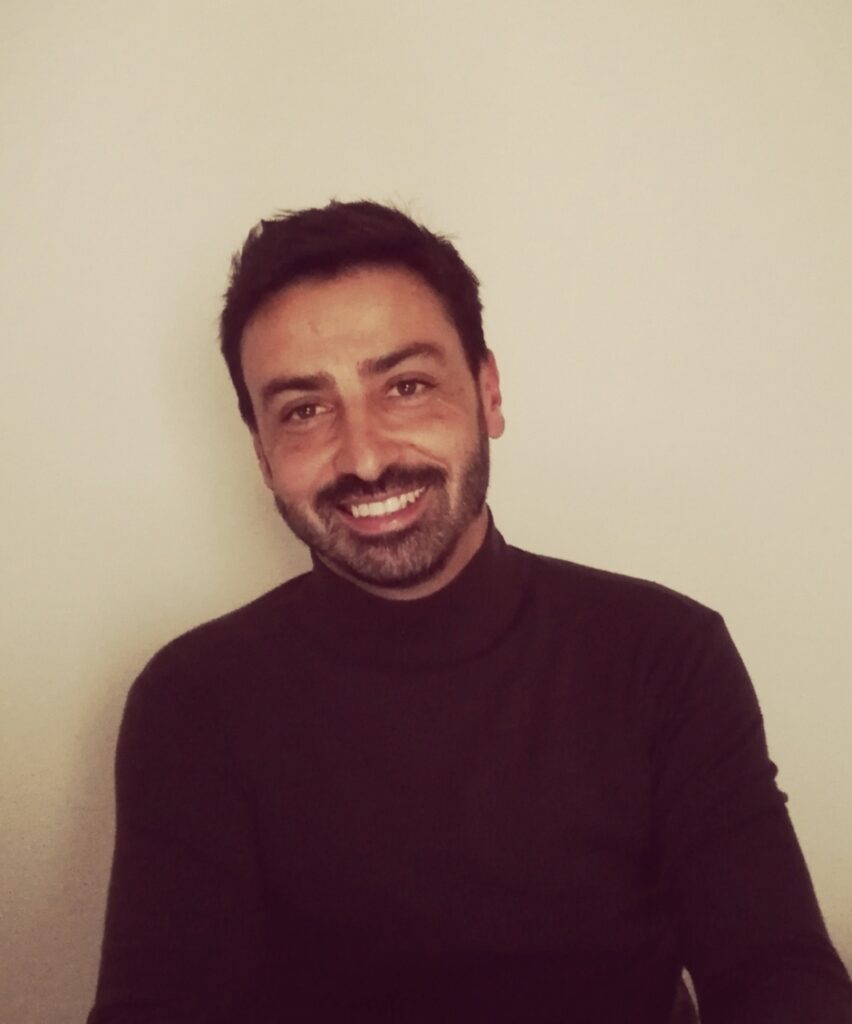
Ricardo Pinto
Ricardo Pinto is assistant professor at University Lusófona of Porto, Faculty of Psychology, Education and Sports, and Director of the Master in Juvenile Justice and Protection of Children and Young People in Danger. He received his Ph.D. in 2013 in Health Psychology at University of Minho. He has expertise in quantitative methods and his programmatic work is in the effects of interpersonal violence on women and children, including child maltreatment and post-traumatic stress disorder in adolescents. This research has significant public health implications in Portugal, where there are relatively high rates of intimate partner violence and childhood adversity and trauma. He is currently interested in testing theoretical models of stress and trauma exposure through virtual reality, for instance in first responders. His work has been published in high profile outlets, such as Psychoneuroendocrinology, Journal of Traumatic Stress, and Child Abuse and Neglect. He is member of the Editorial Advisory Board of the Journal of Traumatic Stress and has been invited to have an editorial participation as a reviewer in several international journals.

Filipa Valente Teixeira
Filipa Teixeira has a Master and a PhD in Health Psychology. She collaborated in several (inter)national funded research projects related to different topics such as healthcare professionals’ role, attitudes and practices towards obesity and obese people (PhD thesis), chronic pain, adverse experiences across the lifespan, and perceptions and impact of living with HIV among women infected by spouses and perinatally infected young. Most recently, her research focus has been on the needs, burnout, and quality of life of informal caregivers of chronically ill patients. She has publications in international and national journals, most of them in indexed high rated scientific journals, as well as several oral and written communications in international and national conferences. She has supervised master students, lectured mostly on research methodologies and she is one of the Associate Editors of The European Health Psychologist Magazine from the European Health Psychology Society (EHPS).
University of Murcia team

PhD. M. Isabel Soler Sánchez
Professor in the Department of Psychiatry and Social Psychology at the University of Murcia. She has participated in several national research projects on gender-based violence, bullying at work and psychosocial factors at work. Director of the Terra Próspera Chair in Gender and Work. Her research interests are related to Human Resources Psychology and gender psychology, psychology work and organizations. She has supervised several doctoral theses, written several manuals and numerous research articles in peer-reviewed journals on the indicated topics. Since 2018 she is the Vice-Dean of International Relations at the Faculty of Labour Sciences of the University of Murcia.

PhD. Mariano Meseguer de Pedro
Professor in the Department of Psychiatry and Social Psychology at the University of Murcia. He has participated in several national research projects on gender-based violence, bullying at work and psychosocial factors at work. Director of the Terra Próspera Chair in Occupational Risk Prevention. His research interests are related to the Psychology of Work and Organizations: burnout, harassment at work, work-related stress, etc. He has supervised several doctoral theses, written several manuals and numerous research articles in specialized journals on the above-mentioned topics. Since 2020, he has the position of Coordinator of Occupational Risk Prevention of the University of Murcia.

PhD. Mariano García-Izquierdo
Professor of Work and Organizational Psychology. Director of Department of Psychiatry and Social Psychology. Director of the Ergonomics and Applied Psychology Service (SERPA), Faculty of Psychology, University of Murcia. He has participated in several national and international research projects on gender-based violence, bullying at work, burnout and psychosocial factors at work. His research interests are related to human resources management and occupational health. He has directed 20 doctoral theses and published more than one hundred articles in high-impact journals on the indicated topics.

PhD.Francisco A. Gonzalez Diaz
Professor of the Department of Labor Law and Social Security. He has specialized in research related to the prevention of occupational hazards. In this sense, he has numerous publications and participates in national and international projects related to business companies in matters of health and safety at work, the prevention of emerging risks and the prevention of new models of labor relations.
Since 2018 he has held the position of Secretary General of the University of Murcia.

PhD. Mª Belén Fernández Collados
Professor of the Department of Labor Law and Social Security.
She has collaborated in more than twenty research projects and contracts with private companies and has published three single authorship books and seven co-authored books, more than one hundred book chapters, forty-one articles in impact magazines, and several minor publications.
She is Director of the Chair of Labor Relations, Social Dialogue and Labor Welfare as well as Coordinator of the doctorate in Law and Coordinator of the Office of the Vice-rector for Employment of the University of Murcia.

PhD. Catalina Nicolás Martínez
She is a professor in the Department of Applied Economics at the University of Murcia. She has participated in the international Global Entrepreneurship Monitor (GEM) and Global University Entrepreneurial Spirit Student´ Survey (GUESSS) projects. Her line of research focuses on the processes of local development, social economy, labor market, occupational segregation based on gender, human resources management and entrepreneurship.

PhD. Diego García Ayuso
Professor in the Department of Ophthalmology, Optometry, Ears Nose and Throat, and Pathology at the University of Murcia. He has participated in several national health research projects aimed at reducing blindness, improving the health and quality of life of citizens and reducing healthcare costs by preventing or slowing down degenerative retinal photoreceptor diseases, including the public-funded Spanish Research Network on Ocular Diseases (RETIC-OFTARED). Since 2018 he is Coordinator of Students at the Vice-Chancellor of Students and University Community Services of the University of Murcia.
University of Nicosia team

Prof. Elena C. Papanastasiou
Prof. Elena C. Papanastasiou, Dean of the School of Education at the University of Nicosia, has received her Ph.D. in Measurement and Quantitative Methods from Michigan State University and an Honors B.Sc. in Elementary and Kindergarten Education from The Pennsylvania State University. Since obtaining her PhD, she has also held academic positions at the University of Kansas, and the University of Cyprus. Her research interests lie in the fields of Assessment, Process Data, and Research Methodology. Prof. Papanastasiou serves as the General Assembly representative of Cyprus in the International Association for the Evaluation of Educational Achievement (IEA), while in 2014 she was elected in the Standing Committee of the IEA. In 2018 she was awarded the status of Fellow of the Association of Educational Assessment-Europe in which she also serves as a Council Member.

Lefki Kourea, Ph.D.
Lefki Kourea, Ph.D., is an Assistant Professor of Special and Inclusive Education at the University of Nicosia (Cyprus). Dr. Kourea began her professional career as a general education teacher working in inclusive school settings for 15 years. She obtained her Master’s and PhD in Special Education/Applied Behavior Analysis at the Ohio State University (USA). Later, Dr. Kourea worked as an Assistant Professor at California State University-Fresno and a Marie-Skłodowska Curie research fellow at the University of North Carolina-Charlotte. Her research line focuses on experimental investigations of academic and behavioral interventions within a school-wide tiered system of supports incorporating scientific knowledge from applied behavior analysis, culturally responsive pedagogy, and implementation science. School-university partnerships are the principal means for conducting her research work.

Professor Dr. Marios Constantinou
Professor Dr. Marios Constantinou is a licensed clinical psychologist. He graduated from the University at Albany with a specialization in Clinical Neuropsychology and Forensics. He is an active faculty member at the University of Nicosia and an active clinician at a local psychological clinic. In the last 20 years, he has been serving in numerous local, European and international committees related to clinical psychology, disabilities, clinical neuropsychology and forensic matters. His research and publications are related to his specializations. He has been involved in international research collaborations and research grants throughout his academic career. He has been an advisor and trainer with Cyprus police, in the last 15 years, for matters of hiring, burn out, anxiety, PTSD and other matters. He served as the doctoral advisor in numerous committees in clinical neuropsychology, burn out, assessment, behavioral improvement and forensics.
